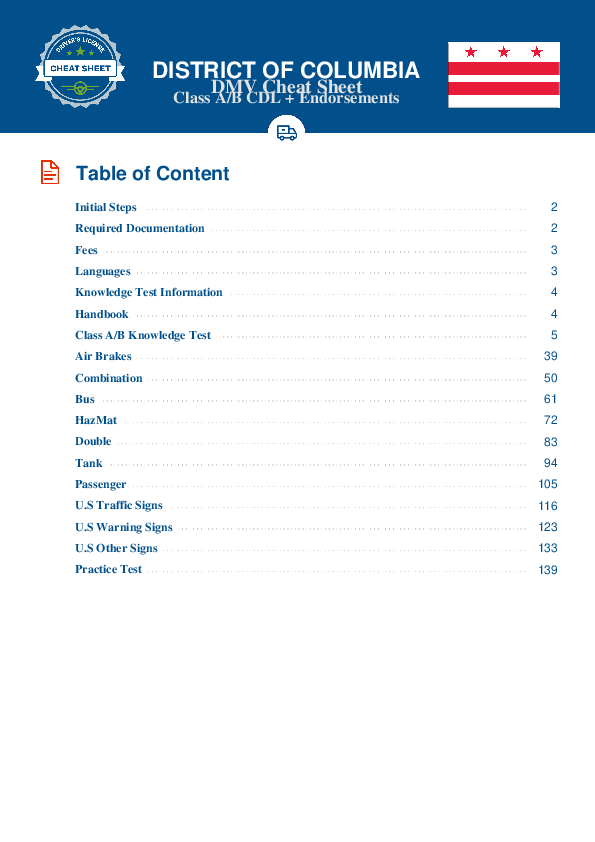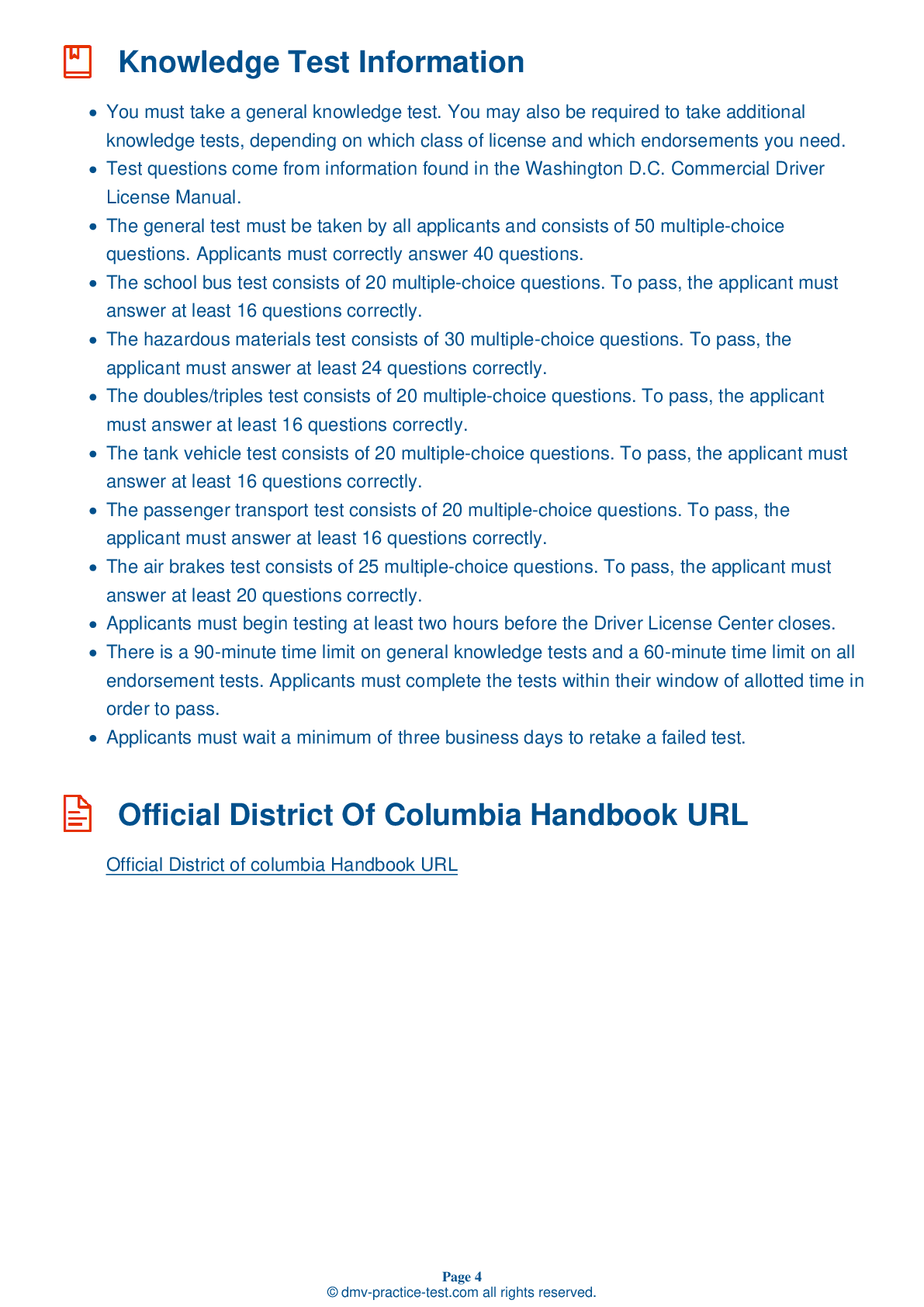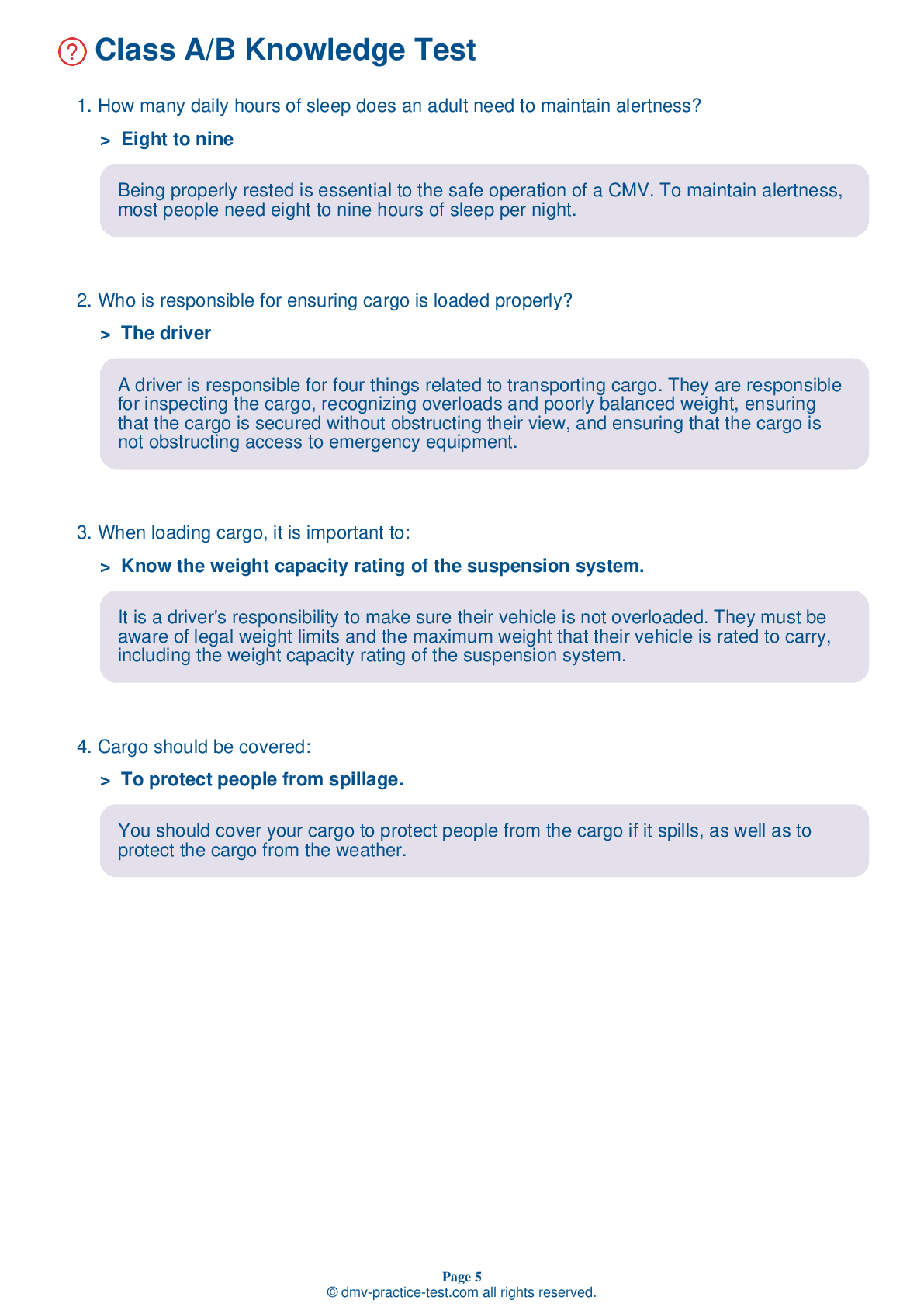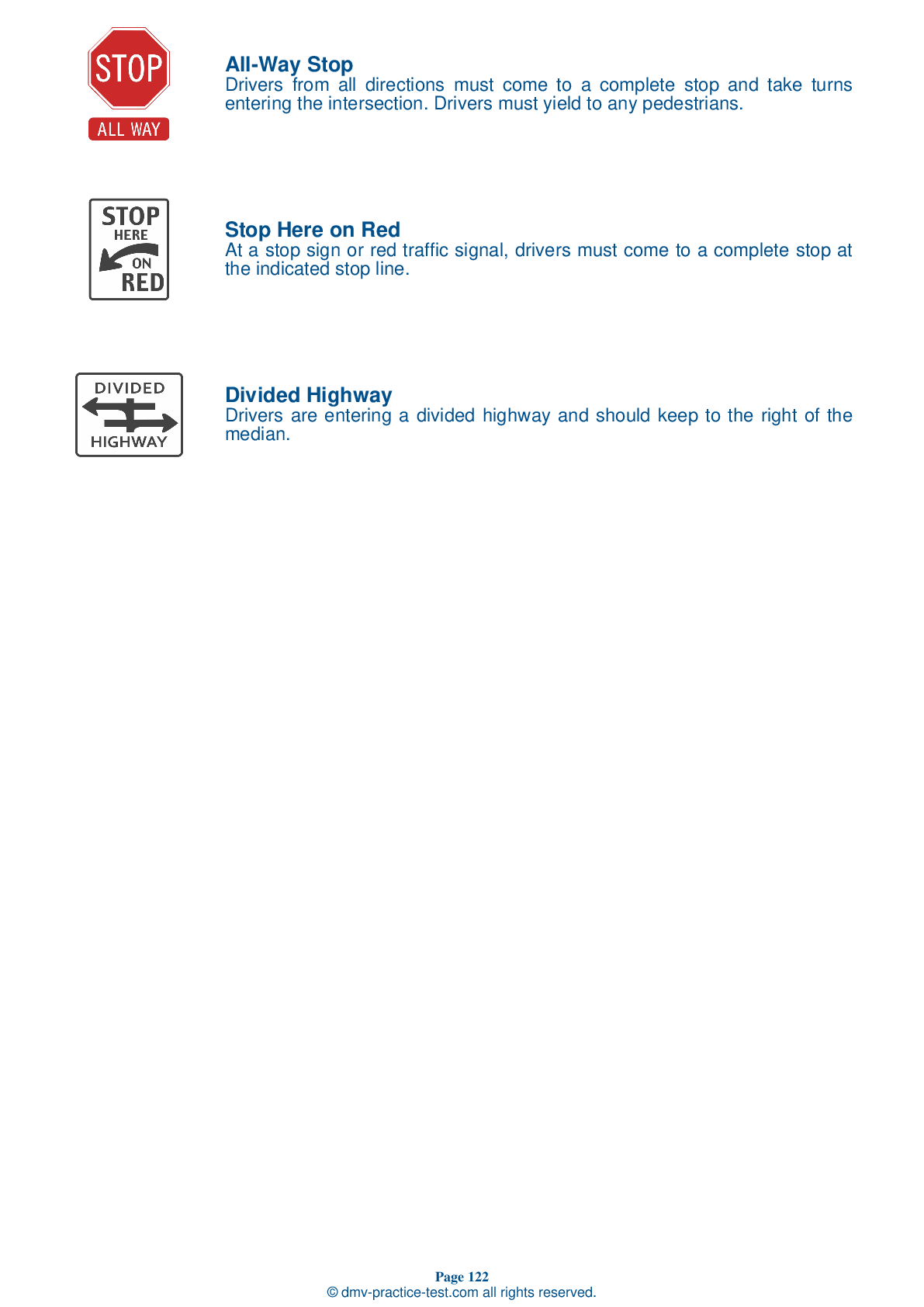Class A Driving Test | District Of Columbia 2026 #1 Page 6 of 7
Train for FREE online with our District Of Columbia class A license test. The official exam test consists of several obligatory parts, with all of them checking your knowledge of different blocks of road rules. If you need to obtain a DC CDL class A permit in 2026, practice as much as possible. Free sample tests published on our website will help you check and improve your knowledge and boost your grades. Please bear in mind that CDL class A requirements may vary from state to state.
36 . A one-way check valve:
A one-way check valve is required to be between an air compressor and the first main reservoir. This valve prevents air from escaping the system if the air compressor develops a leak.
37 . Laws about securing loads and regulating CMV weights may vary from state to state. During interstate travel:
Commercial vehicle weight, securement of cargo, covering of loads, and where large vehicles can be driven are all regulated by federal, state, and local laws. These vary from place to place, so you must be aware of the rules that apply where you will be driving. State laws in the state in which you are driving take precedence.
38 . Off-ramps:
The combination of slopes and curves can make freeway on- and off-ramps dangerous for trucks. Remember that posted speed limits on ramps may be safe to be driven by cars but too fast to be driven by large or heavily-loaded vehicles.
39 . Tie-downs are used to:
On flatbed trailers and trailers without sides, cargo must be tied down to prevent it from shifting or falling in transit. There should be at least one tie-down for every 10 feet of cargo. Regardless of the size of the cargo, at least two tie-downs must be used.
40 . When inspecting the engine compartment, you should not:
When inspecting the engine compartment, you should check the oil level, coolant level, and windshield washer fluid level, among other things.
41 . When a construction worker is close to the road, you should:
In work zones, you should drive at the posted speed limits. Reduce your speed even further when workers are on or near the road.
42 . A CMV should:
All commercial motor vehicles are required to be equipped with the proper emergency equipment. This may include spare electrical fuses; three red reflective triangles, six fuses, or three liquid burning flares; and at least one properly charged and rated fire extinguisher.
See the exact questions that will be on the 2026 District Of Columbia DMV exam.
99.2% of people who use the cheat sheet pass the FIRST TIME
Lillian MCcranie explains how our CDL study guide was helpful in passing the exam and recommends it to everyone.
Cameron tells us how he purchased the CDL exam, and found it to be a useful tool which helped him pass the exam and find a job.



